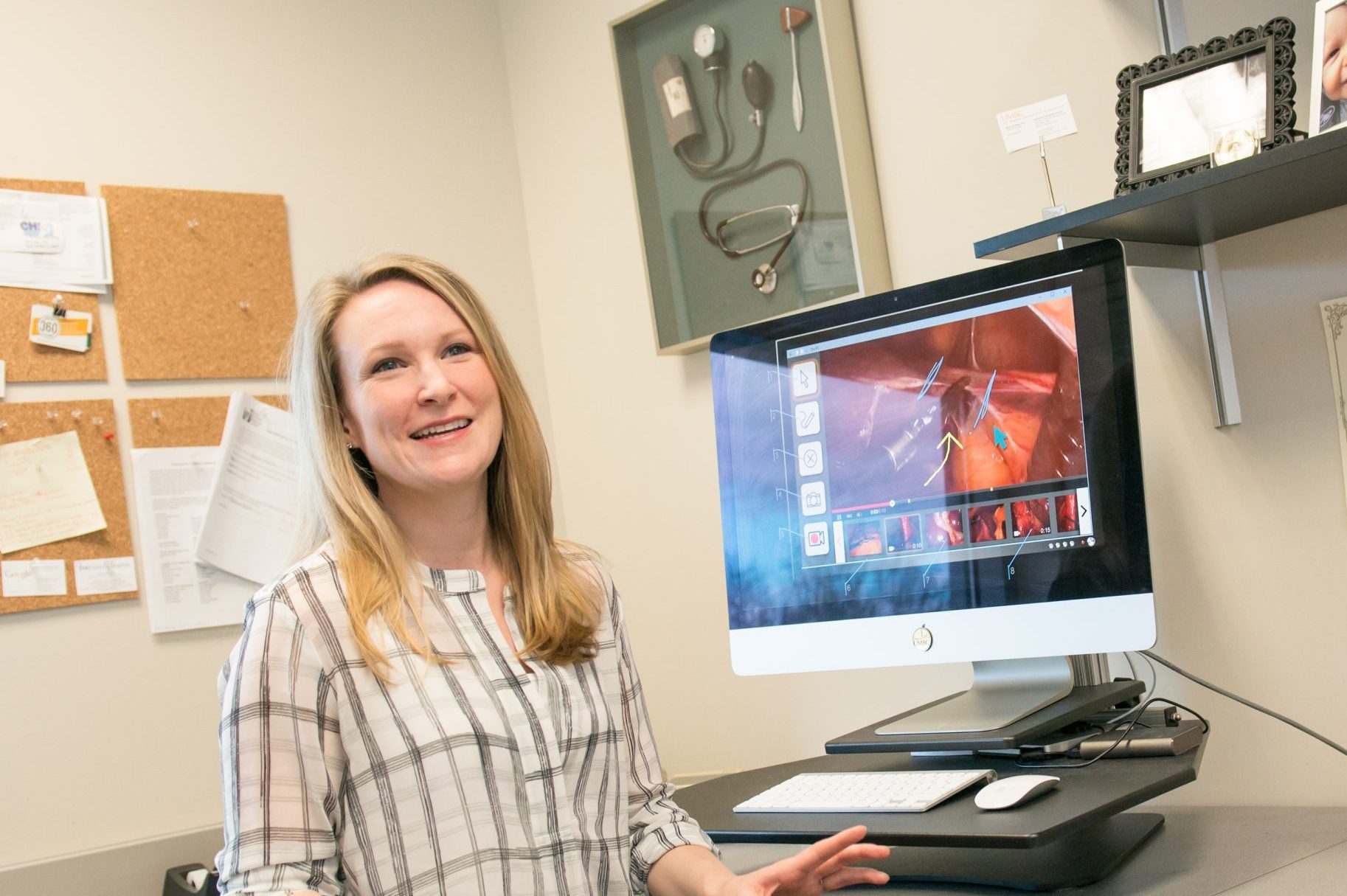When UMBC’s Helena Mentis is teaching, her students often bring up ethical challenges in computing, and they are hungry to learn about how to address them. “We want to capitalize on this curiosity and diversity of perspectives,” says Mentis, associate dean for academic programs and learning and associate professor of information systems. “Alongside technical skill development, every week we want to introduce challenges around ethics, equality, human behavior, and societal impact, reiterating that a fundamental component of development is thinking through implications.”
Incorporating ethics into computing curriculum is crucial to ensure that today’s graduates are well prepared to address the complex challenges of the future, Mentis explains. Recently, she and colleagues in UMBC’s College of Engineering and Information Technology received funding from the Mozilla Foundation to support implementing ethics components in their courses.
Research to improve teaching
UMBC was one of 17 universities from across the country that received funding as part of Mozilla’s Responsible Computer Science Challenge. Through this project, UMBC faculty have restructured an introductory computing course, building into it regular opportunities for students to discuss ethical issues in depth. The course framework is team-based and peer-led. The faculty are also examining the efficacy of these course updates to assess student learning and continue to improve their approach.

Helena Mentis. Photo by Marlayna Demond ’11 for UMBC.
Mentis is the principal investigator
of this research. Colleagues leading other aspects of the research and
implementation include Anupam Joshi, professor and chair of computer science and electrical engineering; Carolyn Seaman, associate professor of information systems, and interim director of the Center for Women in Technology; and Maria Sanchez, director of education and outreach, and professor of practice in mechanical engineering.
Facilitating conversations in the classroom
Mentis explains that discussions about ethics related to computing often occur organically between students as they work to understand their peers’ perspectives. This initiative takes those discussions to the next level, making them an integral part of the course. More broadly, it is also part of a new course structure for first-year engineering and computing students that emphasizes how technology will impact society. The goal, she explains, is “to develop the next generation of technologists who have the framework and vocabulary to address the relationships between STEM and society.”
Lecturer Mark Berczynski taught the introductory computing course this semester. Through facilitated discussions, he helped his first-year students learn to more effectively explore and evaluate the potential negative impacts of technologies.
Team-based learning focused on peer-to-peer connections also played a major role in the pilot course. “Our concept of peer-led team learning has shown that peer-to-peer engagement with material leads to better understanding, better encoding, and longer retention,” Mentis shares.
Mentis and her collaborators will assess whether their approach for teaching ethics in introductory computing is effective both in the short and longer term. They’ll compare the ethics awareness of students in the original computing course with students in the updated course. One year later, students will be asked to complete a survey about how they have applied their knowledge of ethics in other computing classes that they have taken.
Mentis also hopes this new approach will interest a broader range of students in computing fields. She suggests, “Grounding the introduction to computing within ethics and societal implications of technology design has the potential to excite and engage a more diverse student population.”
Banner image: ITE building. Photo by Marlayna Demond ’11 for UMBC.
- For additional UMBC Science and Technology stories, visit the UMBC News site.
- For additional stories about the UMBC community, visit the UMBC Magazine site.
- For additional COEIT stories, visit the COEIT site.
- For additional COEIT Research Highlights, including Publications Spotlights, visit the COEIT Research pages on the COEIT Dean's Office site.